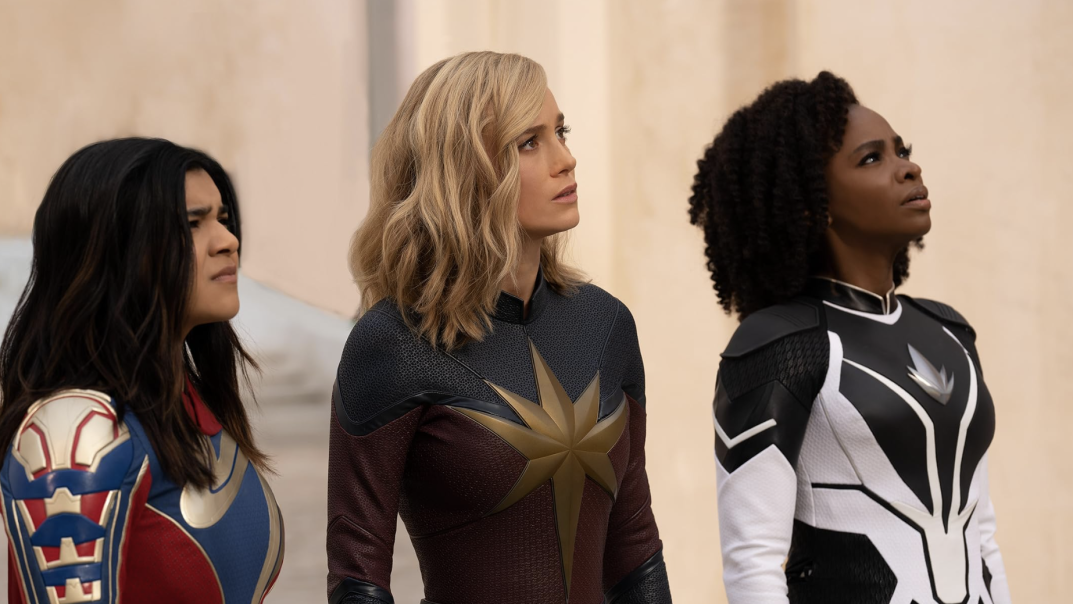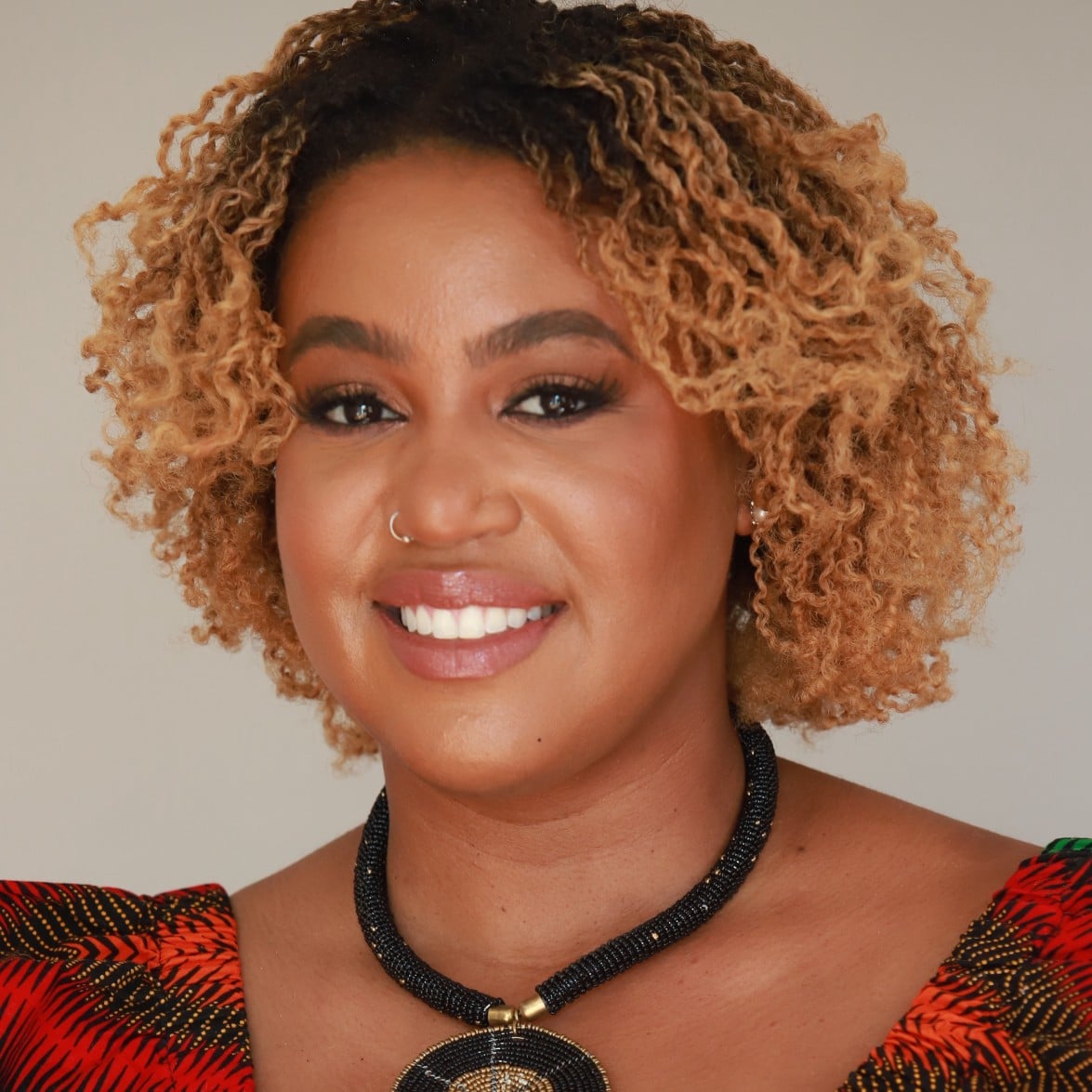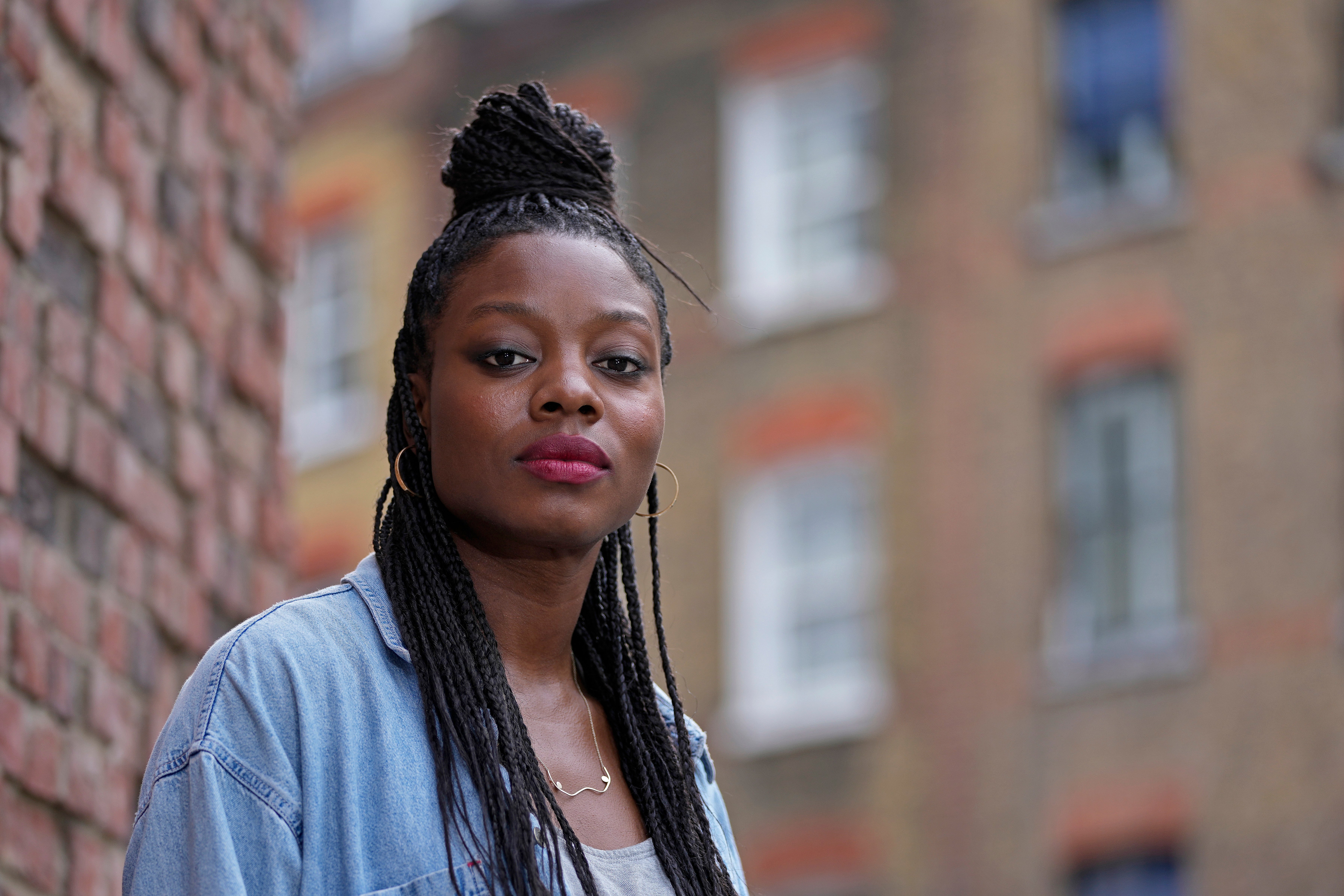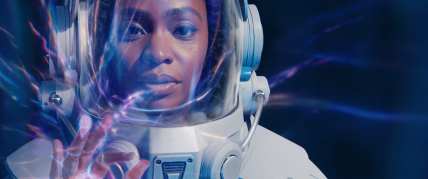‘The Marvels’ retreads ‘Avengers: Infinity War’ with some Black Girl Magic
Even with a great cast, a great premise and some funny moments, the film, unfortunately, is an anti-climactic version of stories we’ve seen before in Marvel movies, and “representation” alone can’t save it.

Editor’s note: The following article is an op-ed, and the views expressed are the author’s own. Read more opinions on theGrio.
The latest installment of the Marvel Cinematic Universe, “The Marvels,” dares to ask: What if Thanos were a Black woman?
Zawe Ashton’s villain Dar-Benn is a genocidal, colonizing maniac who is searching the galaxies for wrist jewelry that will make her powerful and help her exact revenge on her enemy, Captain Marvel (Brie Larson) and every planet with people and creatures Captain Marvel loves.
But don’t worry! It’s for a good reason; Dar-Benn’s planet was colonized, and Captain Marvel’s perpetual white savior complex led her to believe she was saving Dar-Benn’s planet when she really caused its doom. Dar-Benn is simply colonizing other planets and stealing their resources in an attempt to restore her own and build a new empire.
Why is Killmongress wearing top and bottom gold grills, you ask? She must somehow have access to Black American culture (even though she has a British accent and lives in a galaxy far, far away) and also it looks awesome. Don’t ask too many questions, or you’re going to start wondering why “The Marvels” is making the colonizers’ point that they can’t free the people they’re colonizing because then the colonized will do to the colonizers what the colonizers did to them first.
You’re going to have to turn the thinking caps off to enjoy this “Infinity War” retread with a splash of “Black Panther” as the Avengers sub-branch Captain Marvel, Captain Monica Rambeau (Teyonah Parris) and Ms. Marvel/Kamala Khan (Iman Vellani) team up to try to remove Dar-Benn’s wrist jewelry before she makes the “Wakanda Forever” sign and destroys whole planets.
But there is stuff to enjoy!
The Marvels have great chemistry as they’re forced to work in unison due to a glitch that has entangled their powers and inhibited the team from using them without endangering another team member. If Captain Marvel is strong enough to defeat Thanos and Dar-Benn is basically New Thanos, it’s good to give Captain Marvel a weakness that makes defeating Dar-Benn more complicated than it would be if Captain Marvel had full use of her powers.
More importantly, for a nation led by cowardly, warmongering, violently colonial white supremacists who seem to believe that the humanity of Palestinians — or any brown and Muslim children — is up for debate, it matters to see Kamala Khan, a Muslim superhero, on screen. It matters to see her being a funny, awkward, bad-ass child who is seen as a child, protected as a child and fiercely loved on as a child.
It matters to hear her parents say “Bismallah!” It matters to see her brother praying Islamic prayers in a time of crisis and it matters to hear the always incredible Samuel L. Jackson as Nick Fury tell him, “Don’t stop! We need all the prayers we can get! Amen!” We need this. We need not only brown Muslim children or brown Muslim women and girls to have their humanity celebrated onscreen. We need the brown Muslim dads. We need the praying Muslim older brothers. We need the whole family.
It feels so basic, and yet has been so intentionally lacking, twisted and distorted throughout Hollywood history. Hollywood has led the charge in creating brainwashing, white supremacist, Islamophobic propaganda that is in turn used to dehumanize and justify the slaughter of brown people, Arabs and Muslims. Particularly in this context and this historical moment, seeing Kamala and the Khan family onscreen matters. Mashallah!
But a story where we all team up and win against the baddies never seems to work out for the Black people. As I wrote after seeing “Black Panther: Wakanda Forever,” Black people just can’t win in the MCU. Unfortunately, even with Black woman writer-director Nia DaCosta, that doesn’t change.
I knew it was bad for Monica Rambeau when DaCosta said this about the Marvel TV series that introduced Monica in the MCU, “WandaVision”:
“That study of grief, I thought, was really powerful, really moving … You go through this whole series, and then near the end, you see basically [Wanda’s] pain creating this entire town. I thought that was really moving and beautiful.”
The quote seems harmless enough, and “WandaVision” is without a doubt the best Marvel show. It’s also pretty racist in its handling of the Monica Rambeau character. Wanda is a hella anti-Black Karen for whom Monica literally volunteers to sacrifice her life, many, many, times over, with no real explanation. Monica is grieving the loss of her mother, and Wanda is grieving the loss of her lover, so Monica excuses Wanda’s behavior in the series because grief can make you do crazy things.
Except Monica’s response to grief is to throw herself into work, like a normal person. Wanda’s is to kidnap and mind control a town and cause them all mental anguish while she lives out her entitled white woman “Leave it to Beaver” fantasy of suburban wife, husband, kids and white picket fence. One of these things is not like the other. And Monica’s introduction is too underwritten to understand her self-sacrificial level of empathy for Wanda and her fake children.
It’s that magical negro writing of Monica as a character that I feared would rear its ugly head in “The Marvels.” And that’s exactly what happens.
For literally no reason and without a second thought, Monica — who has already lost five years of her life to The Blip — hatches a plan on her own to make herself the sacrifice needed to save earth. We don’t need Tony Stark-level character development in over a decade of movies to get her here. She’s a Black woman, and there are people in trouble. She knows what she must do.
It didn’t have to be this way. Teyonah Parris deserves better.
In the trailer, when Fury challenges Monica to fly and save Kamala from falling out of the sky by hilariously yelling, “Black girl magic!” at her, I wondered what DaCosta’s version of the phrase would mean. Coined by CaShawn Thompson in 2013 (seriously, y’all, give this lady her money if you’re going to keep profiting off of her phrase!). Black girl magic has been interpreted and misinterpreted consistently for the past decade.
In “The Marvels,” Black Girl Magic means Black women can be colonizing villains, too; Black women can have super powers and fly, and yes, in the case of both the hero and the villain, Black women can sacrifice themselves for the good of everyone else or die trying.
I’m tired. And so is this trope.
Instead of being the shortest film in the MCU, the movie could’ve benefited from some real character development of its protagonists and some real stakes. It should’ve felt big and epic and exciting, like Marvel movies do at their best.
Instead, “The Marvels” feels like what it is: a bridge to the next movie in the MCU.
With a great cast, a great premise and some fun and funny moments, the final story is, unfortunately, an anti-climactic version of stories we’ve seen before in the MCU, and “representation” alone can’t save it.

Brooke Obie is an award-winning critic, screenwriter and author of the historical novel “Book of Addis: Cradled Embers.”
TheGrio is FREE on your TV via Apple TV, Amazon Fire, Roku and Android TV. Also, please download theGrio mobile apps today!


